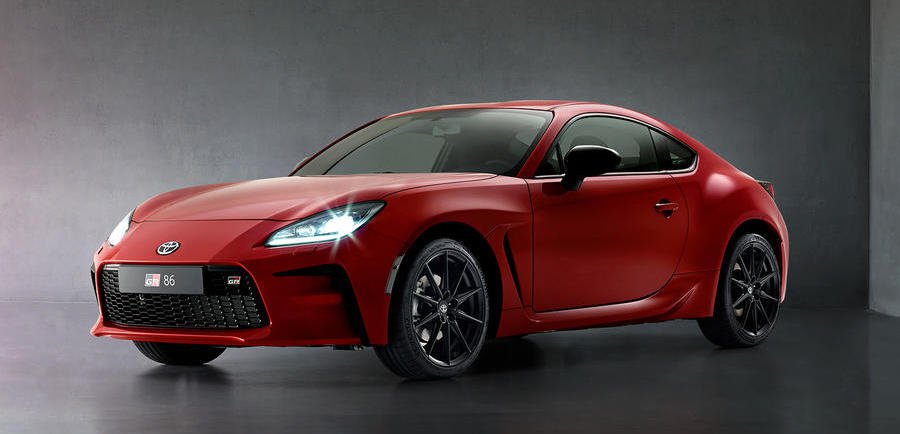2022 Toyota GR 86 Breaks Cover With Bigger Engine And More Power

Toyota has unveiled the new 86 sports car nearly five months after Subaru did the same with its BRZ rear-wheel-drive coupe. More than 200,000 examples of the original version have been sold, and its replacement aims to bring improvements on all fronts while keeping the lightweight recipe almost intact.
To keep weight in check, the engineers have used aluminum for the roof and fenders while making tweaks to the front seats and mufflers to cut fat as much as possible. The revised roof brings another major benefit by lowering the vehicle's center of gravity, which should pay dividends in terms of handling.
Torsional rigidity has been improved by approximately 50 percent to enhance stability while the car's footprint has remained largely the same. It's 4,265 millimeters (167.9 inches) long, 1,775 mm (69.8 in) wide, and 1,310 mm (51.5 in) tall, with the wheelbase measuring 2,575 mm (101.3 in). When equipped with the standard six-speed manual gearbox, the 2022 Toyota 86 tips the scales at just 1,270 kilograms (2,800 pounds). Optionally, an automatic transmission with the same number of gears will be available.
Motivation is provided by a bigger 2.4-liter gasoline engine replacing the old 2.0-liter unit. Still naturally aspirated, the horizontally opposed four-banger produces 232 horsepower (173 kilowatts) at 7,000 rpm and 184 pound-feet (250 Newton-meters) of torque at 3,700 rpm in the JDM-spec 86. The upgraded engine has allowed Toyota to shave off 1.1 seconds from the sprint to 62 mph (100 km/h), which now takes 6.3 seconds.
Aside from extracting more power, Toyota says the engine has a better response and provides "smooth, stress-free sensations from low to high rpms." Joining the GR Yaris, GR Supra, and the forthcoming GR Super Sport hypercar, the new GR 86 also boasts a variety of aerodynamic enhancements developed to improve stability and steering responsiveness. The front suspension consists of a MacPherson strut while the rear setup boasts a double-wishbone setup, with both axles features 18-inch wheels wrapped in 215/40 tires.
You can easily tell the GR 86 is once again twinned with the BRZ as the two largely share the exterior design. The most obvious differentiator is the front grille design as we’re finding Toyota's version to be slightly more aggressive. The grille is similar to what you'll find on the GR Yaris hot hatch and we're noticing the LED headlights are not exactly the same as on the equivalent Subie.
The cabin is also a case of déjà vu as it's virtually identical to its BRZ sister model, aside from the slightly different seat upholstery and GR badging on the steering wheel. It boasts the same seven-inch digital driver's display and an eight-inch infotainment. From the shape of the air vents and seats to the switchgear and pedals, the 86 and BRZ have basically the same interiors. As far as safety is concerned, the automatic model makes use of Subaru's EyeSight Driver Assist Technology.
The second-generation Toyota GR 86 will go on sale in Japan this fall, with details regarding the North American version to be disclosed at a later date.
